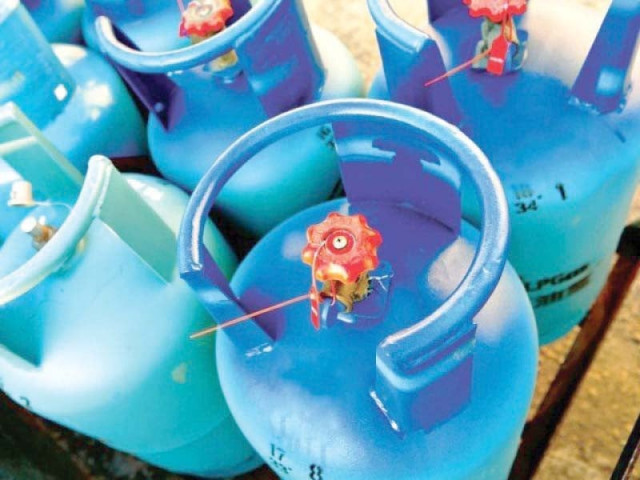CCOE to discuss new LPG policy
Draft policy sparks controversy as it seems to favour importers over local producers

The Cabinet Committee on Energy (CCOE) is set to consider a new LPG policy that has already sparked controversy before approval due to its tilt towards influential LPG importers.
Sources said that the cabinet committee will meet on Thursday (today) to consider draft of the new LPG policy along with several other issues.
After the sugar, wheat and oil scam, another scam seems to be on the cards as the Petroleum Division has amended the LPG Policy 2021, which appears to favour an influential LPG importer and terminal operators by waiving regulatory duty and advance tax on the import of LPG through sea.
The Petroleum Division has introduced measures to strengthen monopoly of key LPG importers at the cost of local production and imports through land route.
LPG importers are said to have pocketed over Rs20 billion during the last couple of years due to the favourable tax regime at the cost of national exchequer.
Read: OGDCL not consulted in new LPG policy
The local LPG producers are paying 17% GST in addition to the petroleum levy on locally produced LPG. The government had earlier imposed regulatory duty equal to the petroleum levy on imported LPG.
However, the importers managed to get the regulatory duty shelved. Moreover, LPG importers are paying 10% GST and selling at market price to consumers, thus the remaining 7% is being pocketed by the importers.
In the new draft, the Petroleum Division has proposed equal GST at 10% for local LPG producers and importers. However, it proposed to abolish the 5.5% advance income tax and regulatory duty on LPG import through sea.
So, it will compensate one key influential LPG importer who would get the benefit on account of waiver of advance tax, federal excise duty and regulatory duty.
Instead, the Petroleum Division has proposed to impose regulatory duty on LPG import through land route. This would tighten the noose around small LPG importers who import LPG from Iran through land route and locally produced LPG.
State-run LPG companies; Oil and Gas Development Company (OGDCL), Pak Arab Refinery (Parco) and Pakistan Petroleum Limited (PPL) had major shareholding in locally produced LPG. They had approached the government to impose regulatory duty on LPG import and remove petroleum levy on locally produce LPG.
All summaries are tilted towards imports and how to further increase margins of importers and to discourage local producers.
Local industry stakeholders say that importers should be asked to declare price of last six month’s imported consignments duly verified by the Federal Board of Revenue (FBR), customs and port and terminal authorities to ascertain the actual cost of imported LPG, which primarily is being traded at hefty discounts minus from CP up to $180 to $250.
If the government is serious in providing relief to the end-consumer than Rs200 per cylinder can be reduced by waiving PDL and GST from local LPG production because the waiver of regulatory duty and GST on imports is being pocketed by importers as consumers are buying at the same price with no difference of local or imported.
Surprisingly, despite representation by all big government producers, solid evidence and proof of over Rs20 billion worth of loss to the government exchequer, instead of putting regulatory duty on imports, the importers continue to get more incentives.
Read more: Petroleum Division amends LPG policy draft
LNG terminal
The cabinet body on energy will also look into the matter of replacing Engro LNG terminal for dry-docking. The government wants to replace it in August due to peak demand for gas now.
However, Engro claims that its insurance certificates were valid till June 30, 2021 and therefore, it is seeking permission to replace it with another floating LNG terminal.
In addition to it, CCOE will also look into the progress report on new LNG terminals. Tabeer Energy and Energas are setting up two LNG terminals in private sector without government guarantees.
Gas companies have already allocated pipeline capacity to these two LNG terminals and the committee will discuss progress made on this front.
Published in The Express Tribune, June 24th, 2021.
Like Business on Facebook, follow @TribuneBiz on Twitter to stay informed and join in the conversation.



















COMMENTS
Comments are moderated and generally will be posted if they are on-topic and not abusive.
For more information, please see our Comments FAQ